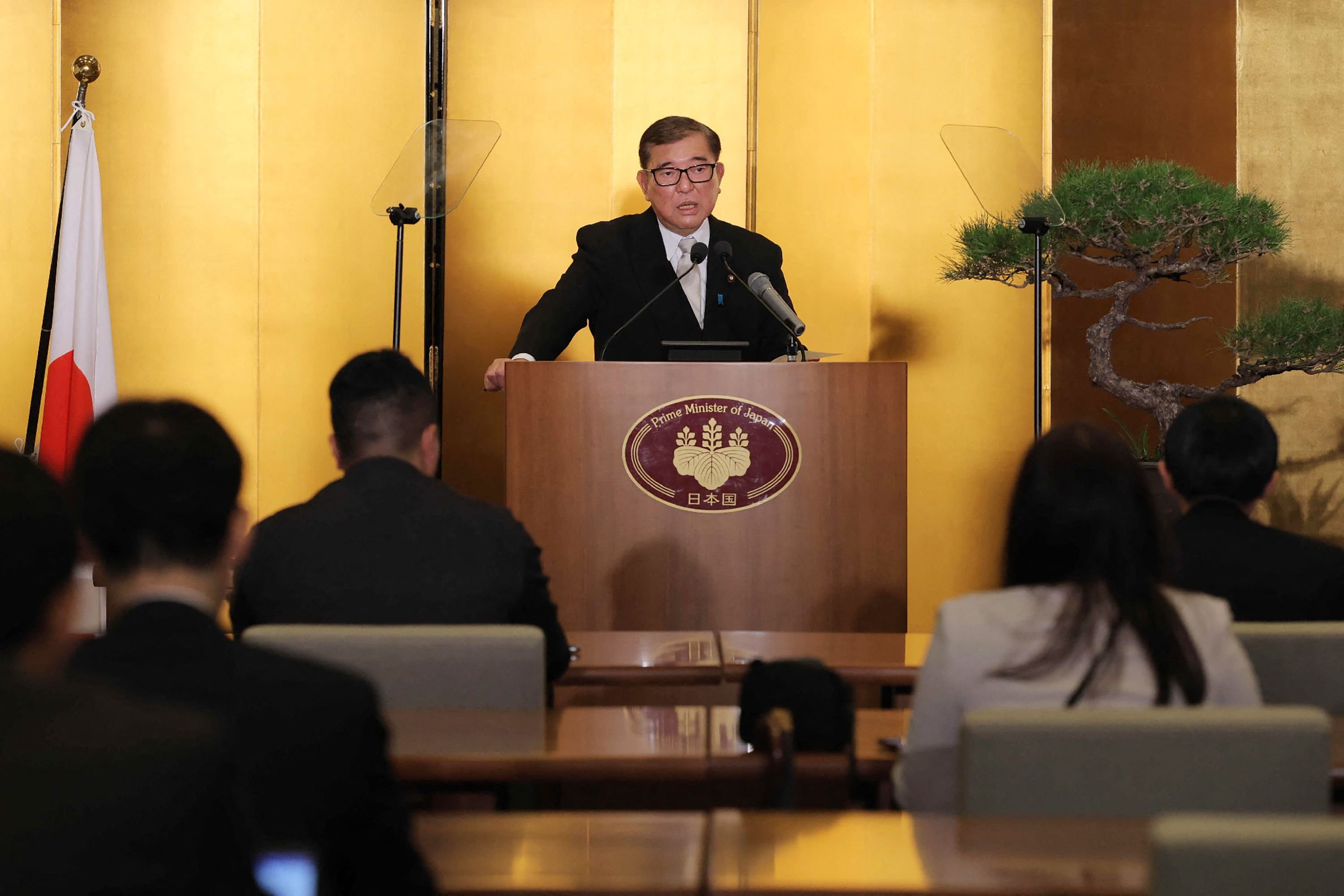© Turkuvaz Haberleşme ve Yayıncılık 2025
Japan's prime minister on Monday called on Washington to address concerns that President Joe Biden's decision to block Nippon Steel's acquisition of U.S. Steel could deter future investments.
The U.S. president's announcement last week cited a strategic need to protect domestic industry, a move that drew sharp criticism from both companies and Tokyo.
A U.S. government panel had failed to reach consensus on whether the $14.9 billion acquisition threatened national security, shifting the decision to Biden in the waning days of his presidency.
Prime Minister Shigeru Ishiba said the veteran Democrat's decision had sparked worries over future Japanese investments in the world's largest economy.
"It is unfortunately true that there are concerns being raised within Japan's industrial world over future Japan-U.S. investment," Ishiba told reporters.
"It's something we have to take seriously."

Japan and the United States are each other's top foreign investors.
"It would be inappropriate for the Japanese government to comment on the management of an individual company that was under review as per U.S. domestic law ... but we will strongly call on the U.S. government to take steps to dispel these concerns," said Ishiba.
"They need to be able to explain clearly why there is a national security concern, or else further discussions on the matter will not work," he added.
Nippon Steel reportedly plans to hold a news conference on Tuesday, when U.S. Secretary of State Antony Blinken will also be visiting Japan following a trip to South Korea.
Biden's decision followed extended wrangling over competing domestic political, economic and trade demands.
The outgoing president – who made the rebuilding of the U.S. manufacturing base a major goal of his administration – had criticized the deal for months while holding off on a move that could hurt ties with Tokyo.
"This acquisition would place one of America's largest steel producers under foreign control and create risk for our national security and our critical supply chains," Biden said on Friday.
The United Steelworkers union welcomed the announcement, describing it as a "bold action to maintain a strong domestic steel industry."
But Nippon Steel and U.S. Steel said the outcome reflected "a clear violation of due process and the law" and Japan's industry minister described it as "incomprehensible."
Nippon Steel had touted the takeover as a lifeline for a U.S. company that is long past its heyday, but opponents warned that the Japanese owners would slash jobs.
The decision to block the deal enjoyed rare bipartisan agreement. Republican President-elect Donald Trump and his incoming vice president had also campaigned against the sale.
But the U.S. Chamber of Commerce noted that investment from the country's "important and reliable ally," Japan, supports nearly 1 million American jobs.
"The decision also could have a chilling effect on international investment in America," it warned.
Even without the U.S. Steel acquisition, Nippon Steel should still be able to meet its mid-term annual production targets, said SBI Securities analyst Ryunosuke Shibata.
"Nippon Steel may have other opportunities in the future to buy a U.S. firm" or to invest in the United States to have a production base there, Shibata told Agence France-Presse (AFP).
"There won't be a significant change in Nippon Steel's growth strategy of investing in the United States and continuing to build up production capacity in India."
Keizai Doyukai, one of Japan's three major business groups, noted that protectionist trade policies were likely to heighten under the Trump administration.
"In areas related to economic security, we should strengthen cooperation with like-minded countries such as South Korea, Australia, the Philippines, and India, so as not to become completely dependent on the United States," it said.
